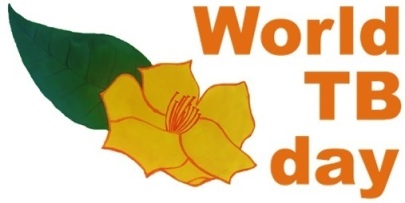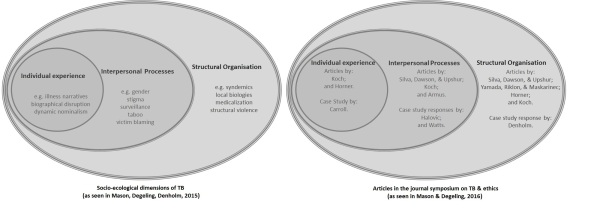Tuberculosis and ethics
 It’s World TB day and a few initiatives are underway! But, before you read on, you can update your profile page on facebook, twitter, etc. using this beautiful floral emblem designed by Priyanka Desai from the Clinton Health Access Initiative: WORLD TB DAY Profile Floral Emblem
It’s World TB day and a few initiatives are underway! But, before you read on, you can update your profile page on facebook, twitter, etc. using this beautiful floral emblem designed by Priyanka Desai from the Clinton Health Access Initiative: WORLD TB DAY Profile Floral Emblem
The virtual book launch for a children’s book about tuberculosis is happening today! Using crowdfunding the Woolcock Institute of Medical Research have successfully raised over $AUD 6,000 to publish, print and distribute copies of this book in Vietnamese throughout the province of Ca Mau. Here is the audio version and voila pdf copies in
English: A book about tuberculosis for children written by Paul Mason and illustrated by Amelia Darmawan (published 24 March 2016).
Tagalog: May Sakit Si Len at Si Alex
French: Un livre sur la tuberculose pour les enfants
Portuguese: Francis e Renê estão doentes
Vietnamese: Phuong va An bi benh
To commemorate World TB day, the Journal of Bioethical Inquiry has published a special journal symposium on tuberculosis.
“What we have is a crisis of imagination,” Peter Buffett urges. “Albert Einstein said that you cannot solve a problem with the same mind-set that created it” (Peter Buffett 2013, 14), and thus we cannot address the global issue of TB (and so many other diseases) without addressing the underlying socioeconomic system in which it thrives. Without addressing the poverty that created it and the poverty created from it.
TB is not something alien, not a disease of an “other.” It is my disease. It is our disease. This issue of the Journal of Bioethical Inquiry, with a symposium on tuberculosis edited by Paul H. Mason and Chris Degeling and in honour of World TB Day 2016, underscores this. It examines the intersections of narratives of TB from multiple disciplines and diverse perspectives. It emphasizes the “deeply personal story” that is TB, even as the global disease burden and efforts at eradication continue to seem daunting (Mason and Degeling 2016).
Leigh E. Rich
Department of Health Sciences (Public Health)
Armstrong State University, 2016

The editorial for the journal symposium on TB & ethics by Chris Degeling and I can be found here: Beyond Biomedicine: Relationships and Care in Tuberculosis Prevention.

Reciprocity and Ethical Tuberculosis Treatment and Control by Diego Silva, Angus Dawson, and Ross Upshur:
This paper explores the notion of reciprocity in the context of active pulmonary and laryngeal tuberculosis (TB) treatment and related control policies and practices. We seek to do three things: First, we sketch the background to contemporary global TB care and suggest that poverty is a key feature when considering the treatment of TB patients. We use two examples from TB care to explore the role of reciprocity: isolation and the use of novel TB drugs. Second, we explore alternative means of justifying the use of reciprocity through appeal to different moral and political theoretical traditions (i.e., virtue ethics, deontology, and consequentialism). We suggest that each theory can be used to provide reasons to take reciprocity seriously as an independent moral concept, despite any other differences. Third, we explore general meanings and uses of the concept of reciprocity, with the primary intention of demonstrating that it cannot be simply reduced to other more frequently invoked moral concepts such as beneficence or justice. We argue that reciprocity can function as a mid-level principle in public health, and generally, captures a core social obligation arising once an individual or group is burdened as a result of acting for the benefit of others (even if they derive a benefit themselves). We conclude that while more needs to be explored in relation to the theoretical justification and application of reciprocity, sufficient arguments can be made for it to be taken more seriously as a key principle within public health ethics and bioethics more generally.
Ethical Responsibility for the Social Production of Tuberculosis by Seiji Yamada, Sheldon Riklon, Gregory G. Maskarinec
Approximately one in two hundred persons in the Marshall Islands have active tuberculosis (TB). We examine the historical antecedents of this situation in order to assign ethical responsibility for the present situation. Examining the antecedents in terms of Galtung’s dialectic of personal versus structural violence, we can identify instances in the history of the Marshall Islands when individual subjects made decisions (personal violence) with large-scale ecologic, social, and health consequences. The roles of medical experimenters, military commanders, captains of the weapons industry in particular, and industrial capitalism in general (as the cause of global warming) are examined. In that, together with Lewontin, we also identify industrial capitalism as the cause of tuberculosis, we note that the distinction between personal versus structural violence is difficult to maintain. By identifying the cause of the tuberculosis in the Marshall Islands, we also identify what needs be done to treat and prevent it.
From Exceptional to Liminal Subjects: Reconciling Tensions in the Politics of Tuberculosis and Migration by Jed Horner
Controlling the movement of potentially infectious bodies has been central to Australian immigration law. Nowhere is this more evident than in relation to tuberculosis (TB), which is named as a ground for refusal of a visa in the Australian context. In this paper, I critically examine the “will to knowledge” that this gives rise to. Drawing on a critical analysis of texts, including interviews with migrants diagnosed with TB and healthcare professionals engaged in their care (n=19), I argue that this focus on border policing, rather than resettlement and the broader social determinants of health that drive current rates of TB, paradoxically renders migrants diagnosed with TB as liminal subjects in the post-arrival phase. This raises ethical issues about who “matters,” as well as dilemmas about what constitutes adequate care for the “Other,” both of which go to the heart of the political economy of migration.
On TB Vaccines, Patients’ Demands, and Modern Printed Media in Times of Biomedical Uncertainties: Buenos Aires, 1920–1950 by Diego Armus
Reconstructing some of the experiences of people living with tuberculosis in Argentina in the first half of the twentieth century, as reflected not only in written and oral accounts but also in individual and collective actions, this article explores the ways in which patients came to grips with medical expertise in times of biomedical uncertainty. These negotiations, which inevitably included adaptations as well as confrontations, highlight a much less passive and submissive patient–physician relationship than is often assumed. Though patients were certainly subordinate to medical doctors’ knowledge and practices, that subordination, far from absolute, was limited and often overthrown. The article focuses on patients’ demands to gain access to a vaccine not approved by the medical establishment. By engaging with media organizations, the sick invoked their “right to health” in order to obtain access to experimental treatments when biomedicine was unable to deliver efficient therapies.
Negotiating “The Social” and Managing Tuberculosis in Georgia by Erin Koch
In this paper I utilize anthropological insights to illuminate how health professionals and patients navigate and negotiate what for them is social about tuberculosis in order to improve treatment outcomes and support patients as human beings. I draw on ethnographic research about the implementation of the DOTS (Directly Observed Therapy, Short Course) approach in Georgia’s National Tuberculosis Program in the wake of the Soviet healthcare system. Georgia is a particularly unique context for exploring these issues given the country’s rich history of medical professionalism and the insistence that the practice of medicine is a moral commitment to society. I argue for critical attention to the ways in which treatment recipients and providers navigate what, for them, is “social” about therapeutic practices and their significance for avoiding biological and social reductionism.
![]() Book review:
Book review:
Development and Public Health in the Himalaya: Reflections on Healing in Contemporary Nepal by Ian Harper reviewed by Paul H. Mason.
TB CASE STUDY by Jane Carroll:
http://bioethicalinquiry.com/the-ethics-of-isolation-for-patients-with-tuberculosis-in-australia/
WHAT HAPPENS IF MIGRANTS ARE DETECTED WITH TB BEFORE THEY MIGRATE? by Dinh Thi Nhung:
http://bioethicalinquiry.com/what-happens-if-migrants-are-detected-with-tb-before-they-migrate/
RECIPROCITY AND MULTIDRUG-RESISTANT TUBERCULOSIS, J.-G. Cho, A. L. Byrne, G. Radford, M. Keller, C. C. Dobler (Response by Australian clinicians):
http://bioethicalinquiry.com/reciprocity-and-multidrug-resistant-tuberculosis/
http://bioethicalinquiry.com/a-principle-based-framework-needed-for-screening-and-treatment-of-tb/
http://link.springer.com/article/10.1007/s11673-016-9707-3
Effective Therapeutic Relationships Using Psychodynamic Psychotherapy in the Face of Trauma, by Shaun Halovic:
http://link.springer.com/article/10.1007/s11673-016-9701-9
Ethics, Tuberculosis, and Compassion: Lessons From Praxis, by Justin Denholm:
http://link.springer.com/article/10.1007/s11673-015-9693-x
And to finish this post, a scene from George Bernard’s Shaws, The Doctor’s Dilemma:
In this scene we meet Dr Ridgeon and Mrs Jennifer Dubedat. Dr Ridgeon has gained fame and honours for an innovative tuberculosis treatment. Mrs Dubedat, whose husband has TB, actively seeks an audience with Dr Ridgeon, despite the doctor’s refusal to see any patients other than the few he has selected for his study. She begs the doctor to cure her young husband, a talented artist who, as we learn later, is devoid of morality. Ridgeon must decide what sort of patient is most worthy of the limited treatment available. Before and after this scene, conversations with physician colleagues provide multiple perspectives on this situation.
Good initaitive to sensitize masses on TB. well done and keep it up